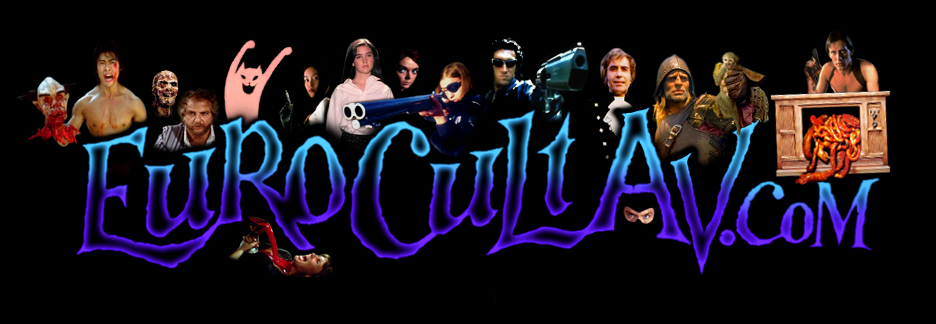
Two-Lane Blacktop
Director - Monte Hellman
Cast - James Taylor, Dennis Wilson, Laurie Bird
Country of Origin - U.S.
Discs - 1
Distributor - Criterion
Reviewer - Scott MacDonald
Date - 01/12/13
The Film (5/5)
Monte Hellman's Two Lane Blacktop is a film about people who drive fast cars. That is the simple synopsis of it. In deeper terms it is a film about storytellers, the stories GTO (Warren Oates) tells the Mechanic (Dennis Wilson) and the Driver (James Taylor), and all the Hitchhikers he picks up. It is the stories running through The Mechanic and Driver’s respective heads that keep them on an endless road trip. It's the stories that drive them to keep driving, and never stopping.
Two Lane Blacktop often gets compared to Dennis Hopper's cultural tour de force Easy Rider, and on a surface level it's not hard to see why that is. A couple of friends cruising down the open road in early 70's America, but much like the comparisons between Tarkovsky's Solaris and Kubricks's 2001: A Space Odyssey it feels like the comparisons are purely cosmetic. Also, like the aforementioned Tarkovsky film Hellman's Two Lane Blacktop feels like a more metaphysical experience.
Two Lane Blacktop is not a film about the story, it's about the experience. In a way it's not even a film about the characters. When the film ends (and this is just my interpretation of a very open ending) life goes on. GTO drives off still boasting of his conquest, most likely fictional, but in his head they make him sound much better to the strangers he picks up. The Mechanic and the Driver will keep driving and racing, and living an almost monk-like existence in worship of their '55 Chevy.
The film begins with the Mechanic and the Driver in the midst of a pick up road race, that gets interrupted by the police causing them to flee. An undisclosed amount of time later, they are having lunch at a dinner and The Girl (Laurie Bird) enters the back seat of their car, and their lives. They don't give the Girl much thought at first, although as time passes The Driver will start to see her as an object of his personal desire. They don't really speak to her except in reference to the car, and the direction they are headed. Along the way they begin to spot GTO driving along the road, after following each other on and off for 2 states GTO, The Driver, and the Mechanic agree to a race from the Gas Station where they're at all the way to Washington D.C..
This event occurs about 45 minutes into the film, and would normally be the catalyst for the rest of the films plot, and in a way it most definitely is. The only thing is if one is expecting a Gone in 60 Seconds, Vanishing Point, or Dirty Mary, Crazy Larry type of car film they better look elsewhere. This is ultimately the race to nowhere, neither GTO or the pair of the Driver and Mechanic seemed inclined to want to finish the race. They occasionally mention finishing it, or heading to D.C., but in the end it seems to be an agreement that they made, and sort of let go with the passing of time.
As the film goes on they end up getting in each others way, but also helping each other complete the race. They socialize like occasionaly friends, and The Girl seems to find her way into the oil-filled hearts of both the Driver and GTO. The plot is sparse, and so is the dialogue, and yet the performances from all 4 leads are absolutely top-notch. There is an intensity, in the simplicity of performances such as the ones by Taylor and Wilson, and to be honest I've never come across a Warren Oates performance I didn't like. Laurie Bird as the girl offers a very natural realistic performance that suits her character well.
The direction from Hellman has an almost low-budget Leone meets Antonioni feel to it with great panoramic views of the country, and yet a certain sparseness that recalls Antonioni's finer works the Passenger or L'Avventura. Also, the pacing of the film offers a near hypnotic effect some modern viewers might find the film moves slowly, but it does so in a way that in the proper mind set will see the film engrained in the viewers psyche.
Two Lane Blacktop is not just a classic of early 70's counter culture cinema, or just a great car film. It is one of the greatest American films of any era. It is over 40 years old, and still feels completely fresh and fantastic. This is a film that deserves the reputation it has, and deserves to find more viewers as time passes further.
Audio/Video (4/5)
Criterion has presented Monte Hellman's Two Lane Blacktop in a fantastic director approved 2:36:1 MPEG-4 AVC encoded transfer that preserves the films original aspect ratio. The transfer on this disc is a true sight to see. I haven't seen Two Lane since the Anchor Bay disc over a decade ago, and of course, this is an improvement over that in every single regard. The detail alone on this disc is incredibly. Remember that Leone reference from above? When seeing this disc in motion especially the landscape shots you will definitely understand why. The detail is also especially excellent in close up shots. The colors are also bright and lifelike like never before. The flesh tones are accurate, black levels are inky and deep, and there is beautiful healthy layer of grain present on the transfer that helps to give the whole thing a nice organic look.
Criterion has presented Two Lane Blacktop with 2 Audio Options an LPCM 1.0 Mono track and a English DTS-HD Master Audio 5.1 track both in English. I tend to be a purist when it comes to film viewing so I stuck to the 1.0 track for much of my viewing, but did switch over a few times to give the 5.1 a listen. Both tracks are similarly excellent with dialogue being clean and clear throughout, music, and the effects being mixed and balanced quite well. I did not detect any audio issues such as pops, cracks, or hissing on the track.
Extras (5/5)
As I stated earlier I last saw Two Lane Blacktop on the old Anchor Bay DVD over a decade ago. Criterion has since put a DVD edition of the film, and most of the extras on the Blu-ray have been ported over from that edition. The extras, however, are detailed and elaborate and offer an excellent package that truly complements the film. The disc kicks off with On the Road Again a 43 minute documentary where Hellman takes a group of his students to various Two Lane Blacktop locations as they exist today. This is followed up by Make It Three Yards a fantastic 39 minute interview between director Monte Hellman and star James Taylor. This is a really interesting interview with Taylor starting out slightly apprehensive of the questions, and admitting that he's never seen the finished film, but opening up and remembering more as time goes on.
We then have Somewhere Near Salinas a 28 minute interview with actor/singer Kris Kristofferson who contributed to the films soundtrack, and very nearly played one of it's leads. This is followed by an interview with much of the production staff including Producer Michael Laughlin, Production Manager Walter Goblenz, along with Jared Hellman, filmmaker Dennis Bartok, and Steven Gaydos of Variety as they spend 24 minutes discussing the actual production of the film. The next extra is Those Satisfactions Are Permanent a series of screen test, outtakes, and interview for casting purposes. There are 2 included a 15 minute session with Laurie Bird, and an 11 minute session with James Taylor. We then have 2 commentary tracks recorded for Criterion in 2007. The first features director Monte Hellman accompanied by Gas, Food, Lodging director Alison Anders. The second features the films screenwriter Rudy Wurlitzer alongside film professor David N. Meyer. The disc content of the set is concluded with a series of photo galleries, and a trailer for the film. The set also includes an extensive set of liner note with essays on the film.
Overall
One of, if not, the greatest American film of all time. Two Lane Blacktop comes to Blu-ray in an absolutely stunning HD transfer. The film looks and sounds better than ever before, with an elaborate slate of extras from those awesome folks at Criterion. Two Lane Blacktop can be nothing, but HIGHLY RECOMMENDED.






